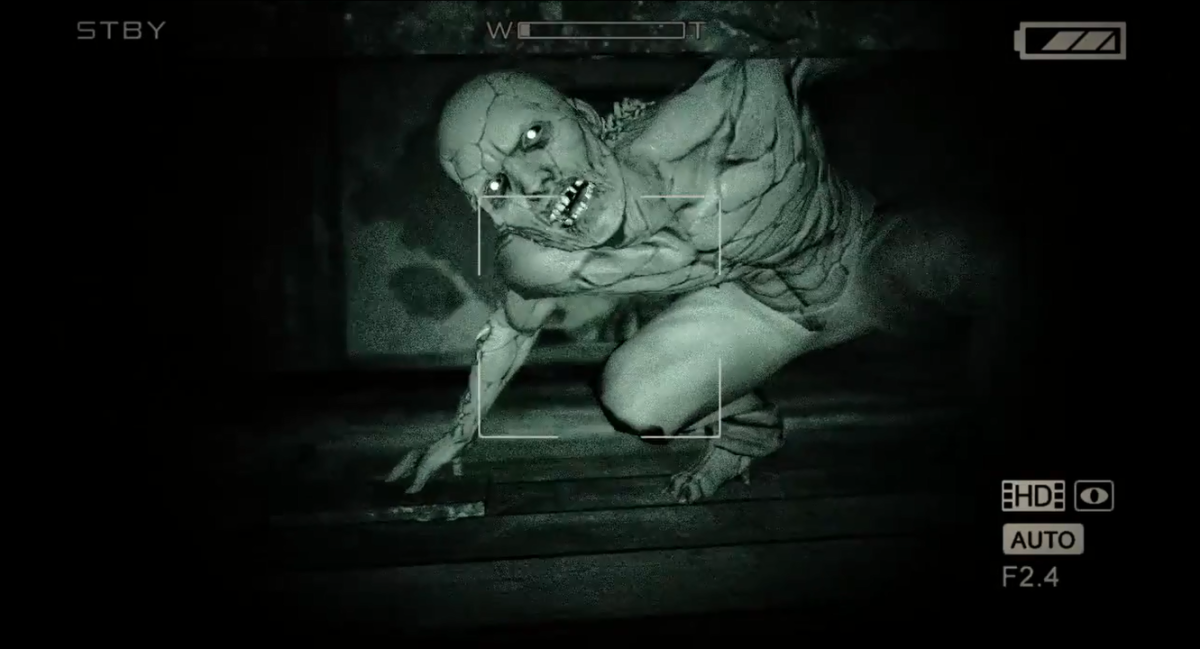Horror is back in vogue. Triple A titles like The Evil Within, Aliens Isolation, and the upcoming Silent Hills have put the genre back in the spotlight, along with indie titles like slender and outlast. It's not that gamers have rediscovered how much the like to be scared, but rather that developers are using new design approaches and technological platforms to deliver the frights. In a recent interview, Capcom's Michiteru Okabe spoke about how excited he is to make use of the burgeoning technology of Virtual Reality in the development of future Resident Evil Games. "It makes a special kind of sense for horror games," he said, "where immersion is perhaps more important than in other genres." Immersion is the key word to discussions of just how far VR could take the gaming experience, but immersion isn't just a question of fooling the senses, immersion also means an emotional state in which the user will become particularly sensitive the physiological effects of gameplay. So what will it mean to use the Oculus Rift or Sony's Morpheus to immerse oneself in that "oldest and strongest emotion of mankind ?"
If YouTubers playing Outlast on the VR are an indication, VR survival horror could be exhilarating and a lot of fun.
As the summer of 2015 comes ever closer, we should get used to seeing compilations of people reacting to the jump scares provided by the plethora of Oculus horror games that are currently under development.
But the Oculus Rift might only the tip of the iceberg, as a headset it doesn't fully engage the entire body in the experience of exploring a terrifying environment. Add the full body as avatar controlling Cyberith, and you've got a level of immersive fear gripped game play beyond what we've ever known.
Don't expect advances in VR to be a boon to the horror genre in videogames exclusively. Movies are going to benefit from it too. Banshee Chapter, an indie horror movie produced by Zachary Quinto, released last December, has been optimized for viewing through the Oculus Rift. According to a promotional video, the film what shot for 3D but designed to be "especially immersive." We can only imagine what the Oculus might mean for the development of cinematographic techniques that would thereafter have to account for the viewer's position in the scene. Without going into any details about the technology used to adapt the film, Blair Erickson, CEO of Jamwix, states that the technology could be used to adapt any film shot in 3D for the a VR headset, meaning that the industry is already developing the tools to popularize VR Cinema.
If you're lucky enough to have an Oculus you can download Banshee Chapter here.
The film itself follows an investigator uncovering secret government drug and mind control experiments. This initial application of horror narratives and tropes to VR raises and interesting question, what other outcomes could come from using a platform like the Oculus Rift to explore the hallucinatory experience of horror? One relevant body of work is the tools developed in a previous generation of VR to simulate the experience of schizophrenia. These simulations of mental disease are pretty much indistinguishable from what could be a segment of a survival horror game. The virtual experience of unpleasant hallucinations. multiple voices shouting "you're dead," a mirror where a person appears with bleeding eyes and other visions, has been used to educate the public about the reality of psychological disease.
Now compare those videos to the much hyped and recently released Silent hills primer, P.T.
Besides the obvious difference in graphic quality the similarity between a simulation of mental disease and the latest survival horror game is undeniable, because both are simulations of a process where the ordering mind has lost control over the subconscious. Can virtual reality help us understand these dysfunctions at the same time as it entertain's us? Perhaps, the study of the a pathways of fear in the brain has been a leading line of inquiry in the research of neuroscience and cognition after all.
Will advances in virtual reality help us explore schizophrenia? our nghhtmares? or as Creative director at cloudhead games Denny Unger recently speculated, are we about to see the first VR related death.
"The low hanging fruit of VR, to me, is horror games that purposely do jump scares. We're very close to having the first death in VR - I firmly believe that."The immersive experience of a VR horror games might indeed put someone suffering from a heart condition over the edge, but I suspect that given how many mental health disorders go undiagnosed and untreated, especially in young people, that same demographic likely to flock to the horror VR experience, a lot of them are going to get "triggered."
Have a tip, or want to point out something we missed? Leave a Comment or e-mail us at tips@techraptor.net












